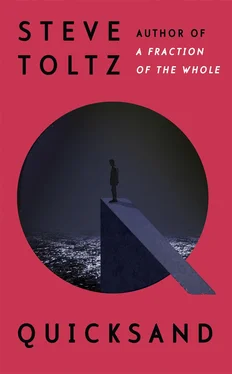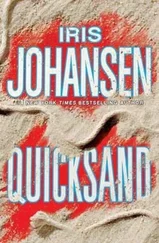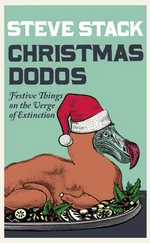‘Editing is performing one’s own autopsy with forensic calm,’ Mr Morrell’s caffeinated voice said in lieu of hello, ‘and if you’re not a good editor, you’re like a battlefield surgeon reattaching the wrong arm. In any case, whatever happened here happened at conception. It’s a real thalidomide baby of a book, tell you the truth, and at the moment the tragic hero of the novel is the author, who even the characters seem to feel sorry for. What you want — I thought I made this clear — is for the reader to feel something akin to a hot teaspoon pressed against a mouth ulcer …’
I hung up while he was still talking. There it was. It had all come to nothing. Well, almost nothing. Morrell was one hundred percent right about one thing: once you’re qualified, you’re on the hook for life. Rent day came around; I was thirty-two years old, had a wife and child to support, and having literally exhausted every unskilled minimum-wage position in the greater Sydney region, I realised, to my horror, that in researching and writing my novel I had acquired the qualifications of a New South Wales police officer. That was it. That was my fallback. And that, reader, is the stupid reason a passive and relatively lazy, fearful writer — neither a doer nor a fighter, nor a respecter of the laws of man — perversely became a cop.
III
I was in a patrol car in the rain during a siege with three violent, glowering adults — my fellow officers — in whose presence I felt almost ceaselessly unsafe, positioned outside a weatherboard house in which a distressed and armed father in his forties had fatally disciplined his child and barricaded himself inside. Gridlocked cars honked in the distance and the house cast a single long shadow across the empty trampoline and the summer brown of the unwatered lawn. In my mind, this was the day it started, though it could have been others.
Apart from the weirdly high percentage of the female population who fetishise men in uniforms, the joy of irresponsible driving, and the childlike thrill of chasing people on foot (in real life, nobody ever stops to fight mano a mano, and worst case you simply shrug and say, ‘He got away’), I hated the job. I hated the chilling look on children’s faces during domestic disputes; I hated the potluck of dragging a river; I hated the chore of finding bodies carbonised in clandestine meth labs; I hated tasering and spraying and bludgeoning and cuffing and detaining and hauling and warning and fining and arresting and patrolling; I hated dying bikies who seemed mostly afraid of an effeminate death; I hated examining four-wheel drives with bits of infant skull on the tread; I hated interacting with sad people for whom only scratch-lottery tickets give them the will to live; I hated having a controlling interest in the short-term destinies of street prostitutes, hash dealers and tipsy drivers; I hated serving AVOs to husbands and seeing the angry confusion of feared men who did not feel frightening; I hated how hard it was not to succumb to a bribe here, a confiscated gram of cocaine there, and the fact that despite a visibly displayed baton, canister of pepper spray and loaded gun, I couldn’t patrol the streets without some civilian asking me directions; and I hated how at least once a month a superior officer would look me dead in the eye and ask the same corny question. Like now, on the day of the siege. I had hoisted myself up in the seat with one eye on the jittery hand behind the curtain, when the old bearish sergeant, who always tried to imbue sexual tension when castigating female officers, turned to us and posed that familiar enquiry in a bladed voice: ‘SO FELLAS, WHY’D YOU JOIN THE FORCE?’
‘My father was a cop,’ said Constable Brock.
‘My favourite aunt was murdered, and I vowed to dedicate my life to making sure that the scumbags of this earth get the justice they deserve,’ said Constable Miller.
‘What about you, Constable Wilder?’
What could I say? While most cops are the bullied in revenge mode, or pious bad eggs with dreams of deadly force, I’d come here by way of failure, by way of words rotting on the vine. I didn’t want these men to know we were on competing wavelengths and they had every right to mistrust me, so I drew a blank and made no response. Policemen are excellent at staring unpleasantly, it has to be said. The lengthening silence was punctuated by the fleeing footsteps of more neighbours running for cover, and a voice over the radio asking, ‘Is Constable Wilder riding with you?’
‘Unfortunately,’ the sergeant said.
‘Constable, you know an Aldo Benjamin?’
I gritted my teeth. That question was usually a prelude to some onerous task I’d be called on to perform. ‘Old high school mate, Senior Sergeant.’
‘Swing by the station after your shift.’
And I hated — I almost forgot — I hated how family and friends would inundate you with legal queries, such as my uncle Hamish who often probed me about drug trafficking — such as whether border patrols check hair extensions — and mates who demanded favours with speeding and traffic infringements, or expected special treatment when breaking the law or mired in legal jams, as my old friend Aldo Benjamin was prone to do. That afternoon, driving back to the station, I thought with increasing fatigue about how every few months, pretty much since the day I’d been sworn in, Aldo found himself in a dilemma that required my assistance: bar fight; bar fight with bartender; accused by neighbour of poisoning then running over beloved terrier; purchasing a gram of cocaine thirty seconds before a police raid; being a suspicious person, and then being a suspicious person in a vehicle; opening a car door into a bicyclist’s face. Recently, he’d called early one morning to ask if I knew the age of consent. ‘Sixteen,’ I said. ‘Get dressed,’ Aldo said to someone else, and hung up. It’s an open secret and practically an unwritten rule that every officer, regardless of rank, is allowed to step in and ask for special consideration for one fuck-up: a father who needs around-the-clock surveillance; a cousin who requires a security detail; a wayward mate who needs backup or bailing out. It was with Aldo I more than used up this precious token. This was not your regular cheering up or sympathetic ear or shoulder to cry on, but a new definition of friendship, one that included a little hocus pocus with paperwork or actual armed reinforcements. Now I wanted to call ahead to the station to get a hint of what was waiting for me. It could be anything from possession to reckless endangerment, a gross misunderstanding or a bad judgement call. Some people defy the limits of your imagination and you just have to accept that.
I turned off the freeway. The majority of Aldo’s sad imbroglios were related to his businesses going kaput. After we graduated, Aldo had grown into a serial entrepreneur and small-business owner with a knack for flooding the market with products that didn’t sell, and starting ventures that actively repelled customers. For more than a decade he had demonstrated a special magic for attracting investors and losing their money, and because his repeated failures failed in multifarious ways, and because he always felt tremendous optimism for a project and then incredulity when it bombed — yet somehow managed to get back on his feet just when you’d counted him out — there were incalculable numbers of unhappy small investors out to get him, any of whom could be the cause of today’s degrading emergency.
The chaos of those fifteen-odd years since high school had passed for Aldo in an entrepreneurial blur: his retrofitted 1963 Airstream Trailer food truck (it crashed), his warehouse dance parties (shut down by police), his vending machines stocked with health snacks like gluten-free flaxseed bars and quinoa cakes (vandalised into disrepair), his prototype of a device that detected trace elements of peanuts in food (it simply didn’t function), his tanning-salon taxi service (customers sued for melanomas and motion sickness), his I’m Not Drunk, I Have Cerebral Palsy You Ignorant Fuck T-shirts (three sales in total), his maternity clothes for goths (a demographic with an 85 percent abortion rate). Not to mention the failures of his midlife-crisis consultancy clinic, his Mexican taco stand, his foam eyewear, his recycled soap, and his doggie dental mints and paw-print art. His product launches were all teachable moments: he never knew his market, he foisted poor-quality merchandise on customers he ignored. Who were his lenders? Where did he find these foolhardy creditors with no radar? His mother, Leila, was always good for start-up funds. So was his girlfriend, Stella. Uncles. Friends (myself included). State government small-business loans. Angel investors, men with crushing handshakes — overcompensation for prior accusations of limpness, Aldo assumed — who’d take new shirts out of their thick plastic envelopes and change right in front of you. I suppose in his mind failure was unimaginable, despite its persistent recurrence. Otherwise, why would he have blown his mother’s entire retirement fund, forty thousand dollars, to manufacture fashionable sandals in China? He didn’t have excuses or explanations, he had anecdotes: how he bought inventory in bulk up front; how he arrived at the factory to find they’d made the whole lot out of a synthetic flammable material that irritates human skin; how on the way to a key meeting he was stuck in a historic traffic jam that lasted from nine a.m. until five p.m. the following day; his realisation that the replacement supplier’s headquarters was in one of China’s cancer villages he couldn’t bring himself to enter. It went on like that. I remember when he came back from the debacle, he couldn’t face Leila; he called her from a payphone in Chinatown every lunchtime for six months, pretending he was still in Shanghai. One afternoon Aldo and Stella were in the supermarket, and who does he run into in the frozen-food aisle? The look on his mother’s face was his lowest moment, he said, and he vowed, ‘I will never again try to make it big in this world! I will merely subsist!’
Читать дальше











